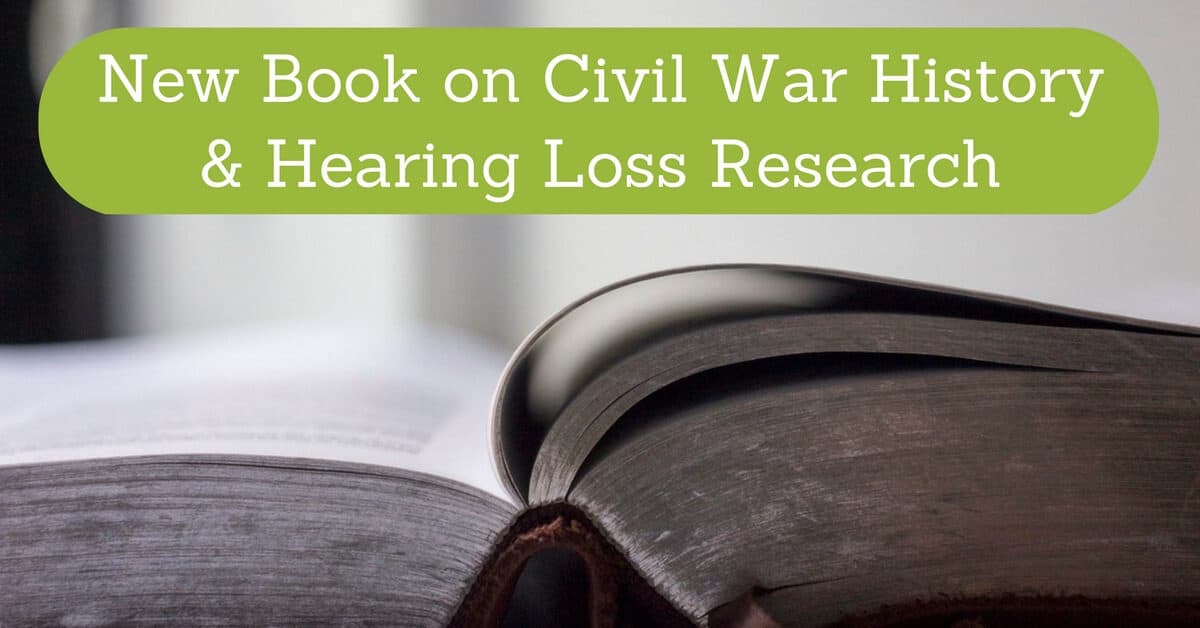Before the American Civil War, those who were deaf or hard of hearing didn’t have an accepted place in society, but lived a secluded life away from the lime light. In an upcoming book by Harry G. Lang, a former professor at the Rochester Institute of Technology’s National Technical Institute for the Deaf, it’s revealed how the Civil War changed how we view hearing loss today. Lang describes hard of hearing and deaf populations as “invisible” in society, since their disability isn’t obvious based on appearances alone, and he’s already co-authored nine books about deaf and hard of hearing Americans who have become successful educators, scientists, and performers to shed light on the history of deaf Americans.
Lang’s latest book, Fighting in the Shadows: The Untold Story of Deaf People in the Civil War, covers uncharted ground. Scheduled to be published in May by Gallaudet University Press, this is the first book of its kind to look at how the Civil War changed the deaf community forever. He hopes that this book will educate the population about the deaf community, fight discrimination, and empower those who are hard of hearing to achieve their dreams, and accept nothing less than equal treatment.
Researching Civil War
Lang struggled to find accurate information about the deaf community during and after the Civil War. He found material in university libraries, national archives, personal diaries, periodicals, newspapers from Civil War days, and online histories about soldiers that fought during the war. He managed to amass a wealth of knowledge about deaf soldiers and activists during the Civil War era.
Deaf Soldiers
Army regulations prevented men who were deaf from joining the army, but definitions of deafness were usually left up to the individual doctor carrying out medical exams. Hundreds of soldiers who were deaf managed to make it through medical examinations, and join both the Union and Confederate armies. The most famous of these were the Union’s General John Gross Bernard, who was responsible for the construction of forts around Washington D.C., and on the Confederate side, General Maxcy Gregg who’s deafness is said to have caused his death at the Battle of Fredericksburg.
Of course, many deaf veterans weren’t hard of hearing before the war. Thousands of soldiers were deafened during the war by artillery, head injuries, and illnesses. Many of these, like Theodric Gage and George P. Myers continued to fight even after losing their hearing. Deafness on the battlefield and in camp was also common due to thousands of soldiers who struggled with temporary hearing loss from the deafening noise of the battlefield.
Changing the Country
After the end of the war, the fight to end discrimination against the deaf and hard of hearing community continued. “In many ways,” says Lang, “the national crisis empowered many to believe in their own abilities.” The conflict allowed deaf and hard of hearing individuals to step out of the shadows and prove that they could also be successful. While those in the deaf community still face some discrimination today, the years following the Civil War were a battle ground for the community, with the fight for equal treatment focusing on deaf veterans who wanted equal pension payments, and fought to keep sign language from being banned.
Who is Harry G. Lang?
Harry Lang, who has been deaf since the age of 15, faced a lot of discrimination as a teenager, and was discouraged from get a university education because of his deafness. Lang is a well-known figure in the deaf community, a self-made man concerned with how scientists struggling with deafness or other disabilities are viewed by Americans.
Lang’s work has been inspiring to those in the deaf and hard of hearing community, providing role models like Edmund Booth, a deaf pioneer in Iowa who was active in raising awareness of the evils of slavery, and Robert F. Panara, the first deaf faculty member at RIT. These provide inspiration from the lives of deaf Americans, and offer more information on a hidden side of American history. He tells the stories of hard of hearing Americans, and his tireless work to raise awareness of the deaf community has made him a leading historian of deaf people in the United States.
Don’t let hearing loss stand in the way of the things you love! Contact us at one of our My Hearing Centers locations today to schedule a hearing test.
My Hearing Centers
Reach out to us today to start your journey to better hearing.
(888) 230-0875
info@myhearingcenters.com


